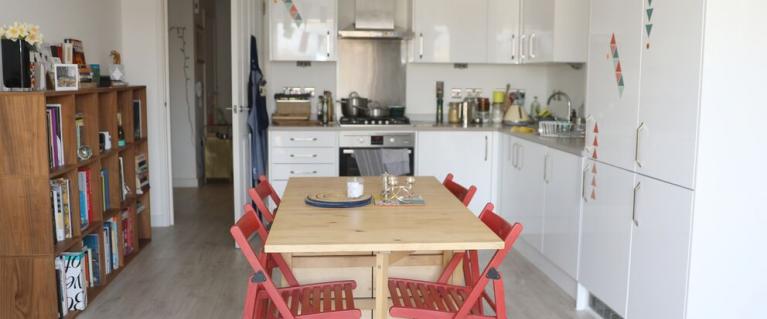
Short term and holiday lets in London
Short term letting is when a residential property is rented out (or let) for a period of less than 90 nights. This includes Londoners letting or sharing their homes on platforms such as Airbnb, HomeAway and Booking.com. In recent years there has been a rise in the use of short term lettings platforms to rent out property in London. However, there are legal requirements covering any short term letting that takes place in London, regardless of how it is organised.
The law is designed to allow Londoners to earn a little extra money by letting their property out when it isn’t being used, such as on weekends or when they are on holiday, whilst protecting London’s housing supply for use by long term residents. It is not designed to provide opportunities for the commercial sector.
Unless planning permission is obtained, Londoners are restricted to renting their property short term for a maximum of 90 nights in a calendar year.
Summary of the law
In London, letting a residential property short term usually means it becomes 'temporary sleeping accommodation' in view of the law. 'Temporary sleeping accommodation' is used to refer to sleeping accommodation which is occupied by the same person for less than 90 consecutive nights in return for money (or money’s worth or because of that person’s employment).
The law states that in London a residential property may only be used as 'temporary sleeping accommodation' (i.e. let short term) if two conditions are met. These conditions are:
- the total number of nights that a property is used as temporary sleeping accommodation (short term letting) must not add up to more than 90 nights in a calendar year (1 January to 31 December); and
- at least one of the persons providing the accommodation must be liable to pay Council Tax at the property where the short term accommodation is provided.
It is unlawful for a residential property in London to be used as 'temporary sleeping accommodation' without planning permission when it doesn’t meet these two conditions. This means that any property used for short term lettings for a total of more than 90 nights in a calendar year must have planning permission from the local council in which it is based.
People letting their property in breach of this law risk local councils taking planning enforcement action against them.
Do I need planning permission?
You need planning permission if your property is in London and you allow it to be used for short term letting for periods that add up to more than 90 nights during any calendar year. The law considers that this is a material change of the use of your property. You can contact your local council to apply for planning permission.
Providing your home is already lawfully in residential use you don’t need planning permission to rent it out to long-term occupiers for periods of more than 90 nights at a time.
Other things to consider before short term letting your home
Before you let out your property short-term, you need to ensure you have the correct permissions in place. You may need to seek permission from:
- the landlord, if you are renting your property
- the freeholder, if your property is leasehold (likely if you live in a flat)
- your mortgage provider, if you have a mortgage
- your insurance provider.
You should also make sure you inform your guests about important local information, such as where to put bins and what can be recycled. In addition, make sure that your property is safe and not at risk of fire. You should set clear rules for your guest and be clear about things like noise.
You may also wish to inform neighbours that you are letting your property, particularly if you live in a flat, so that they are aware to expect visitors.
The Short Term Accommodation Association website includes a compliance checklist you may wish to consider before renting your home, as well as a charter for considerate short term letting.
Properties in breach of the law
If you are concerned about a property near you being let out in breach of these requirements you should contact your local council in the first instance. They may investigate to check if the property has the correct permissions to be let out and may take enforcement action if they find it in breach. They may suggest you keep a log of all activity taking place at the property, which could be used as evidence.
Legal disclaimer
The purpose of this guide is to give general guidance only. It does not constitute legal advice, nor should it be relied upon. You should always seek independent formal legal advice prior to taking any legal decisions and/or entering any legal documentation relating to residential property.
This guide is not exhaustive. The information here has been tailored to Londoners and is different for those living outside the capital.
Need a document on this page in an accessible format?
If you use assistive technology (such as a screen reader) and need a version of a PDF or other document on this page in a more accessible format, please get in touch via our online form and tell us which format you need.
It will also help us if you tell us which assistive technology you use. We’ll consider your request and get back to you in 5 working days.